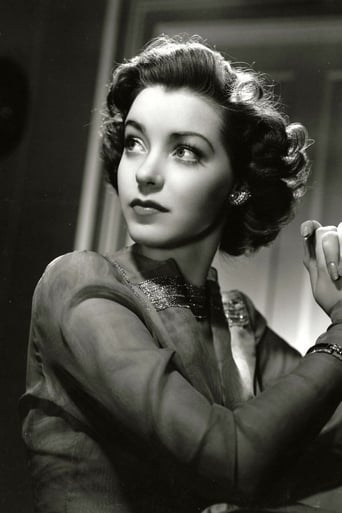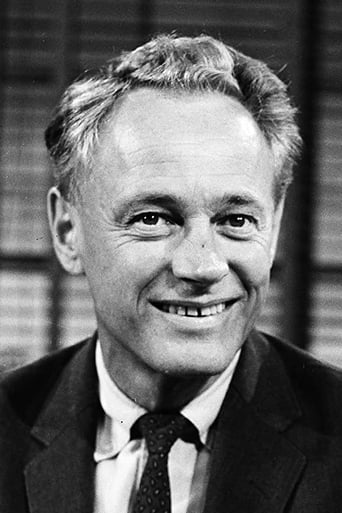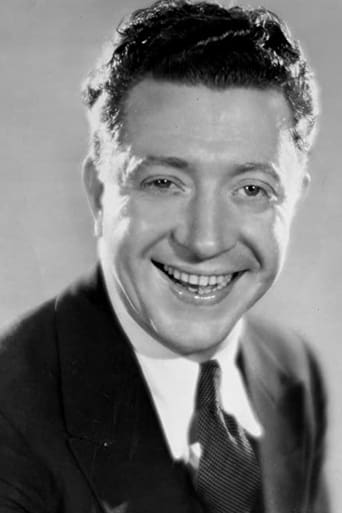Greenes
Please don't spend money on this.
Mjeteconer
Just perfect...
FuzzyTagz
If the ambition is to provide two hours of instantly forgettable, popcorn-munching escapism, it succeeds.
Casey Duggan
It’s sentimental, ridiculously long and only occasionally funny
bkoganbing
Long before Carnegie Hall came to the big screen, modern swing music arrived there with Benny Goodman and his clarinet with that famous concert in the late Thirties. So the idea behind the film was already quite dated.But the rather hokey plot of this film only serves as a frame for numbers by more classical artists than ever gathered on one movie at the same time. If you love classical music and the great artists who are no longer with us from the past than this is your movie and no review good or bad will have anything to do with whether you see it or not.Such as it is the story revolves around Marsha Hunt whose mother was a charwoman at Carnegie Hall and she started there as well and worked her way up to part of the management. She married and had a son who grew up to be William Prince who listening to the greatest classical artists around got a real musical education. But all Prince wants to do is play piano with Vaughn Monroe.Without giving too much away, let's say that the education was not in vain after all.With people like Walter Damrosch and Leopold Stakowski conducting symphonies and such artists as Lily Pons, Rise Stevens, Jan Peerce and my favorite Ezio Pinza on the screen, if you're a classical music fan this movie is a must for you. The story is easy to take as well and there's a nice performance by Frank McHugh as Carnegie Hall's eternal doorman.
richard-1787
This is a movie about a young man and his mother. She sacrifices everything so that he can study to be a classical pianist. He falls in love with big band music and decides to pursue that. His mother is heart-broken. In other words, one long, slow cliché that has been done better elsewhere.If that's all there were to this movie, I would say "forget it." But in between these scenes of melodrama there are live performances by some of the greatest classical musicians of the 1930s and 40s, indeed some of the greatest classical musicians of all times. Their performances, often truly great ones, are not wedged in in bits and pieces. Rather, we get to watch Arthur Rubinstein perform the entire Chopin Military Polonaise - and then de Falla's Ritual Fire Dance. We get to watch Jascha Heifitz perform the entire last movement of the Beethoven Violin Concerto - and with what fire! We get to wonder as Leopold Stokowski completely distorts the tempo markings for an entire movement of a Tchaikovsky symphony, producing a series of remarkable moments that, for this listener, never came together as a whole - but still, what daring to pull Tchaikovsky apart like that. Stokowsky and Rubenstein both remind us of an era when classical musicians were also stage performers. Rubenstein bangs away at the keyboard with fantastic arm gestures. Stokowski is very clearly conscious of the angle from which he is being filmed. These are spectacular musicians devoted to the music, yes, but these are also colossal, theatrical egos.We get to see Ezio Pinza stand there in a costume that would be grounds for a law suit, yet sing Don Giovanni's Brindisi like no one else - and the opening of Il lascerato spirto, from Verdi's Simon Bocanegra, the only musical fragment in the movie.I saw this - most of it - on TCM. It is evidently available on DVD. I hope the DVD recognizes the dual nature of the movie and has the tracks arranged so that one can skip over the melodrama and just enjoy the remarkable musical performances.
Neil Doyle
If you love classical music, CARNEGIE HALL will give you an earful. Some of the great performers of the time are seen in concert, such as Leopold Stokowski conducting Tchaikovsky's "Symphony in E Minor," Artur Rubenstein doing Chopin's "Polonaise" and "The Ritual Fire Dance" at the piano keyboard, Jascha Heifetz and his nimble fingers on the violin for Tchaikovsky's "Concerto for Violin," all performed brilliantly and making for a memorable soundtrack.But the story is a mawkish affair--MARSHA HUNT wanting her son to be a concert pianist who will some day play at Carnegie Hall, while he has other plans that include the world of modern music. When he joins the Vaughan Monroe band, mother and son sever their relationship and the rest of the tale treads the predictable movie line of many a backstage musical with no inspiration from the screenwriter.It doesn't help that Hunt's age make-up is as artificial as the thin plot that is supposed to hold all of this music together. WILLIAM PRINCE as her son makes almost no impression and MARTHA O'DRISCOLL is merely eye candy as the girlfriend who becomes his wife.If only the producers had a script worthy of all this music. RISE STEVENS does a nice job on an aria from "Carmen" and LILY PONS gets to do her famous "Bell Song," but neither of these acts are staged as more than "get up to the mike and sing." EZIO PINZA and JAN PEERCE are a bit luckier in the staging of their arias.Music lovers will certainly appreciate all the musical bits, some of which go on for quite a lengthy time while what little plot there is comes to a complete standstill.A feast for the ears, but not much can be said about the film itself which is more like a test of endurance over two hours and sixteen minutes of running time.Trivia note: All of the performing scenes were actually filmed at the newly refurbished Carnegie Hall.
gazebo350
I saw this film when it first came out in 1947. at that time i was still learning to appreciate the great classical tradition. so this movie was an eye opener for me. i couldn't afford to go to concerts so here was an opportunity to see as well as hear some of the great icons of the classic world ie stokowski, walter, rodzinski, Rubinstein, heifetz, piatigorsky et al. yes it was a big thrill for me at the time. no less thrilling was to see Tchaikovsky himself in the opening scene, (as played by an actor of course.) the story line was purely secondary and was not to be taken seriously. this was the era ie the thirties and forties when you would occasionally hear some classical music in the movies. nelson eddy and Jeannette MacDonald for example would give some tid bits etc. it was also the time when the lives of composers such as Brahms, Schumann and Chopin were also being portrayed. a time when classical music was part of the everyday vocabulary albeit in somewhat truncated and simplified form. that now has all changed for some time and classical music is relegated to the limbos of the hoary past and is no longer part of our everyday. so this is a movie for classical music lovers or aspiring lovers of this seemingly defunct art.






